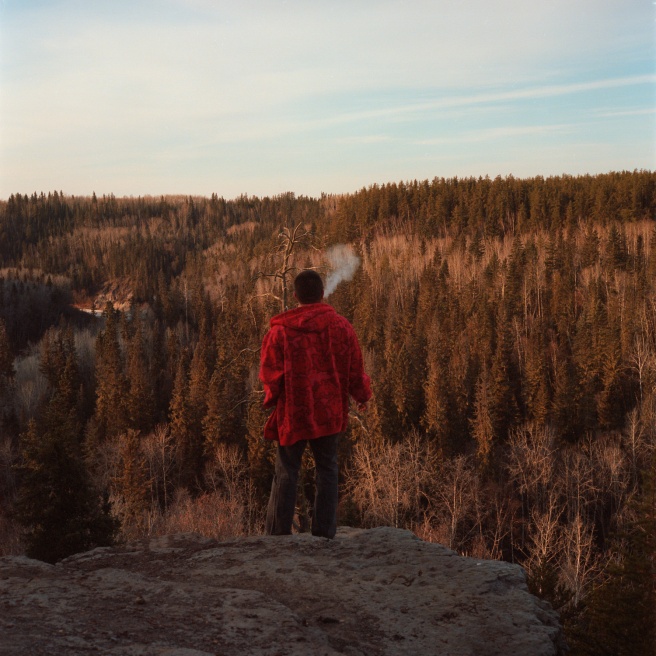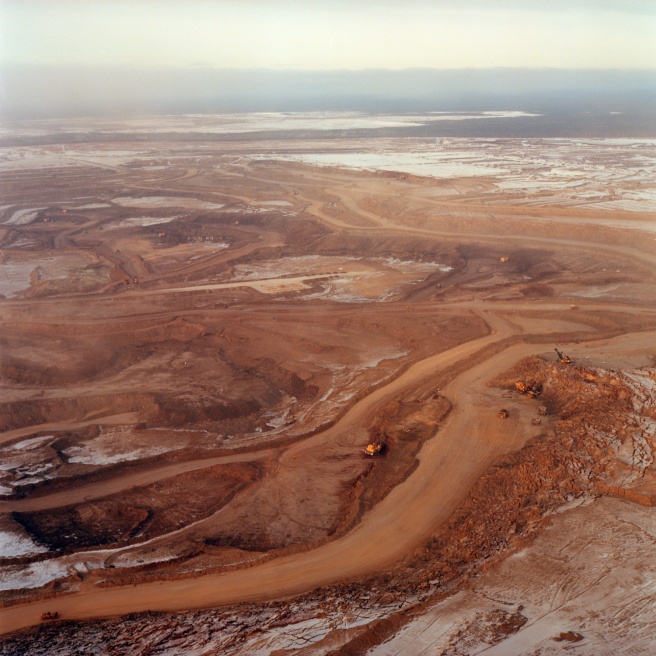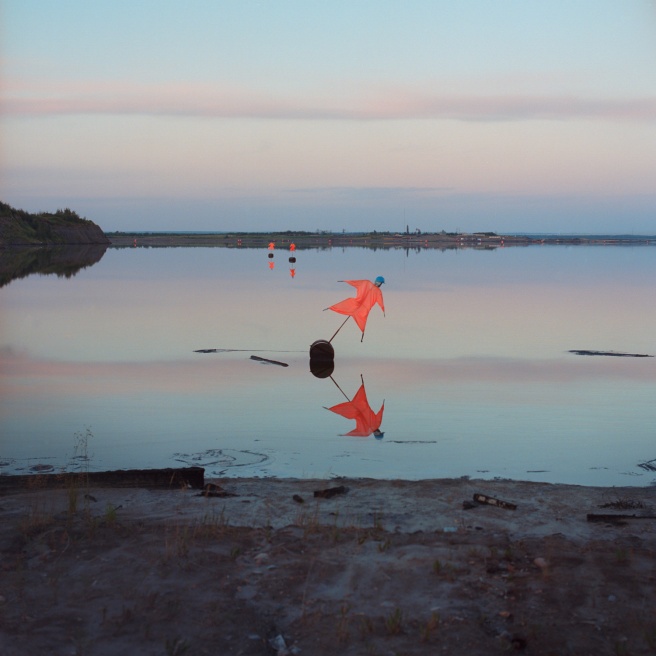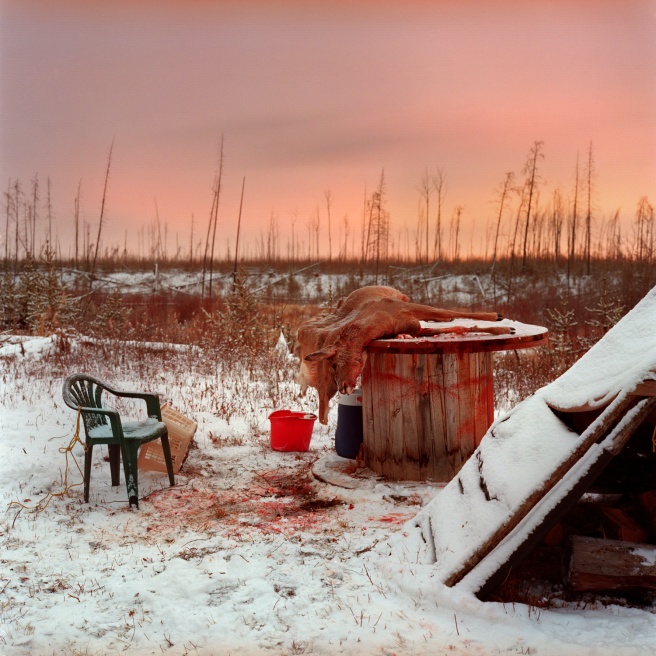In the 1960's the Cree and Dene First Nation (native) Reserve of Fort McKay situated on
the Athabasca River in Northern Alberta's Boreal forest had no running water, the people
lived in shacks and there were no roads connecting it to the rest of Canada. They
sustained themselves off the same traditional economy of hunting, and trapping their
ancestors practiced in the region for thousands of years. But as 83-year-old elder Zackary
Powder says, "Its not like it used to be, everything has changed."
In Northern Alberta Canada the ecological wealth of the Athabasca River provided for Native tribes long before the arrival of Europeans. Since 1778 the Athabasca was part of the main fur trade route from the Mackenzie River to the Great Lakes employing local Natives as fur Trappers. Fur from the region helped fuel the Canadian colonialist economy. Today, the Canadian economy remains supported by the regions resources, but the fur fueled Hudson's Bay Company is only a memory here, replaced by the likes of Syncrude, Total, Shell, Imperial Oil and Suncor, formerly the Great Canadian Oil Sands, which on June 6, 1970, spilled 19,000 barrels of oil from a ruptured pipeline into the river. 30km downstream the Cree, Dene and Metis people of Fort McKay fished to feed their families.
Along the river banks and beneith the trees lays the thrid largest oil deposit in the world. Know as the Oil Sands, an unconventional oil that is deposited in 140,000 sq kilometers of sands and earth beneith the Boreal forest of Northen Alberta. The collection and extraction of this oil has devestated the ecology of this once pristine region, clearing the forests, poisoning the rivers and creative toxic tailings ponds held back by the largest earthen dams in the world.
The community of Fort McKay First Nation resides 65 km north of the boomtown of Fort McMurray and is surrounded by Oilsands development, what has become the largest industrial operation in the world. With the collapse of the fur trade and a growing inability to live off the polluted land Fort McKay was faced with a choice. Work for the oil companies, or fall into a welfare economy that plagues reserves across Canada. They chose the jobs and in 1986 created the Fort McKay Group of Companies which today grosses over $700 million providing services to industry. Without access to healthy land the community struggles to maintain their cultural activities, they can no longer eat the fish from the river or drink the local water and many beleive their health is being impacted with high rates of cancer, asthma and miscarriage.
My project Sleeping with the Devil examines this transition on the community of Fort McKay. Prospering within a system that is destroying the very land that is at the heart of their identity they must negotiate an inner conflict as their values, health and culture are decimated in return for a standard of living most Canadians take for granted.



































